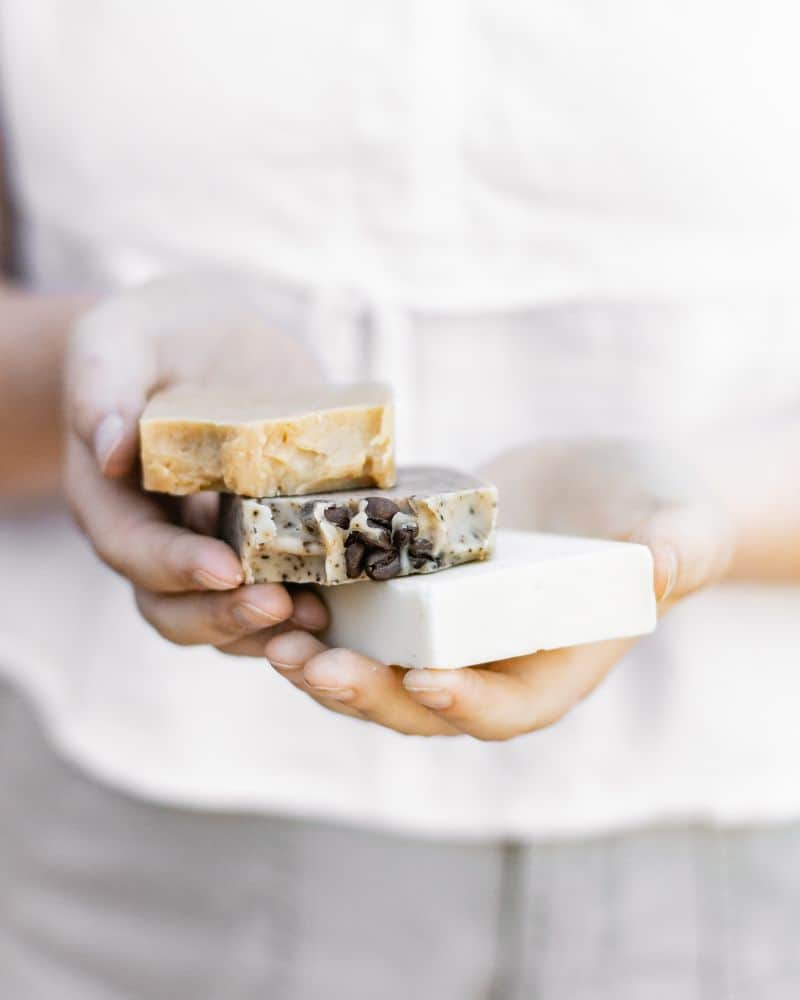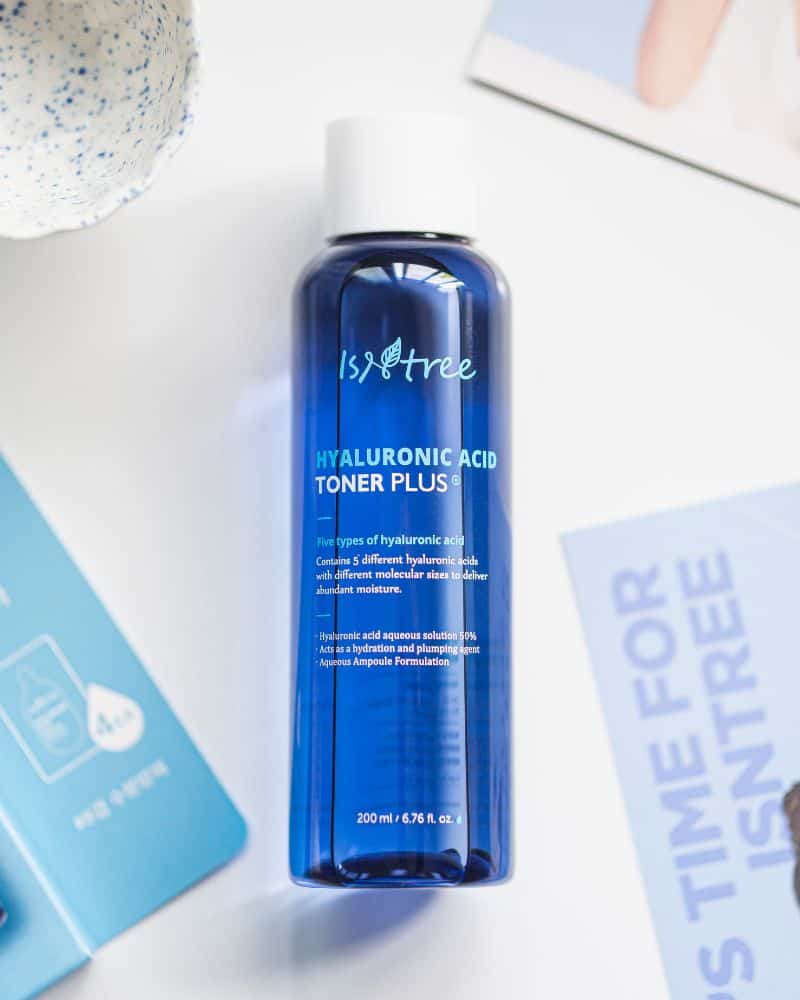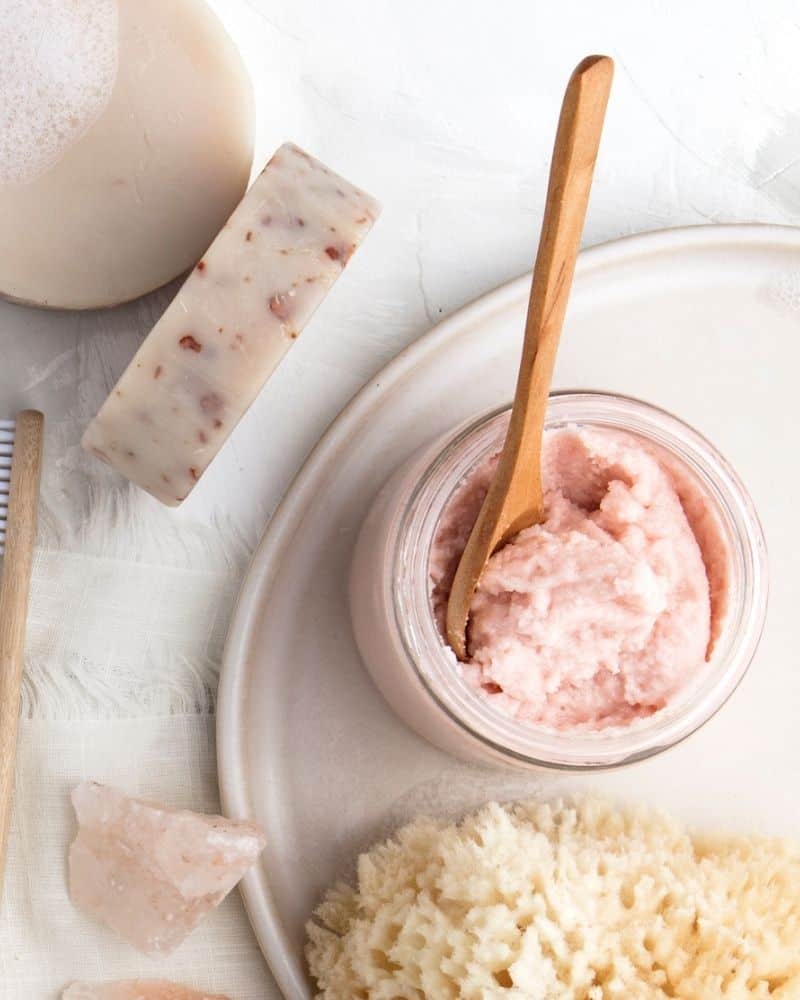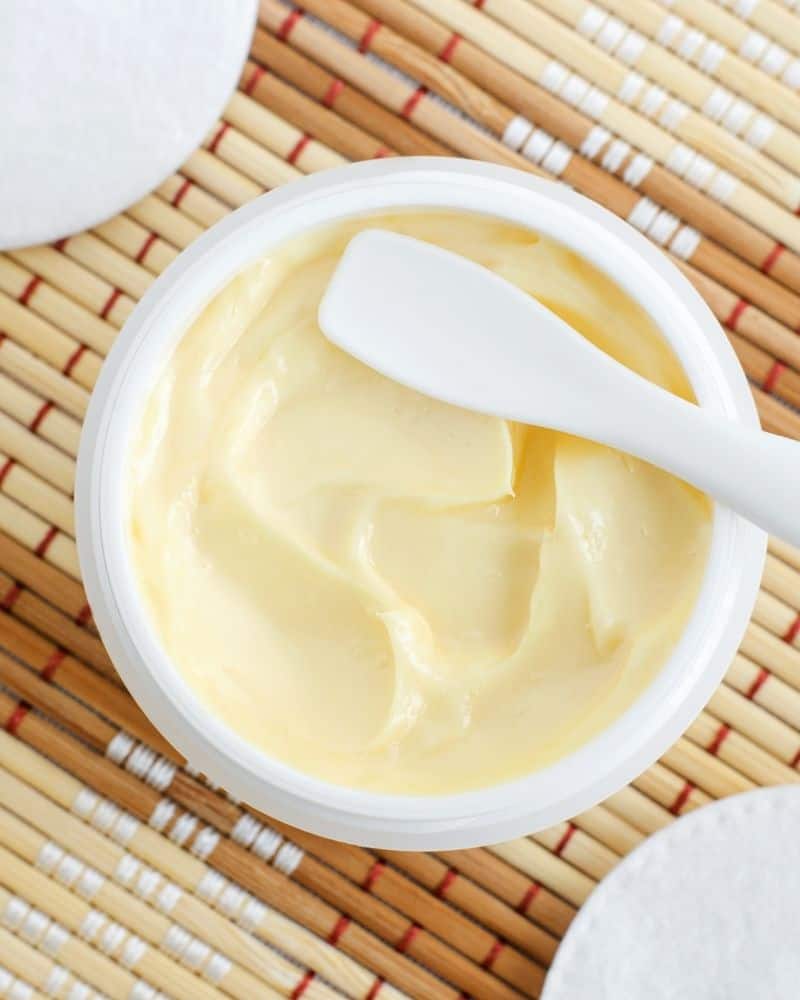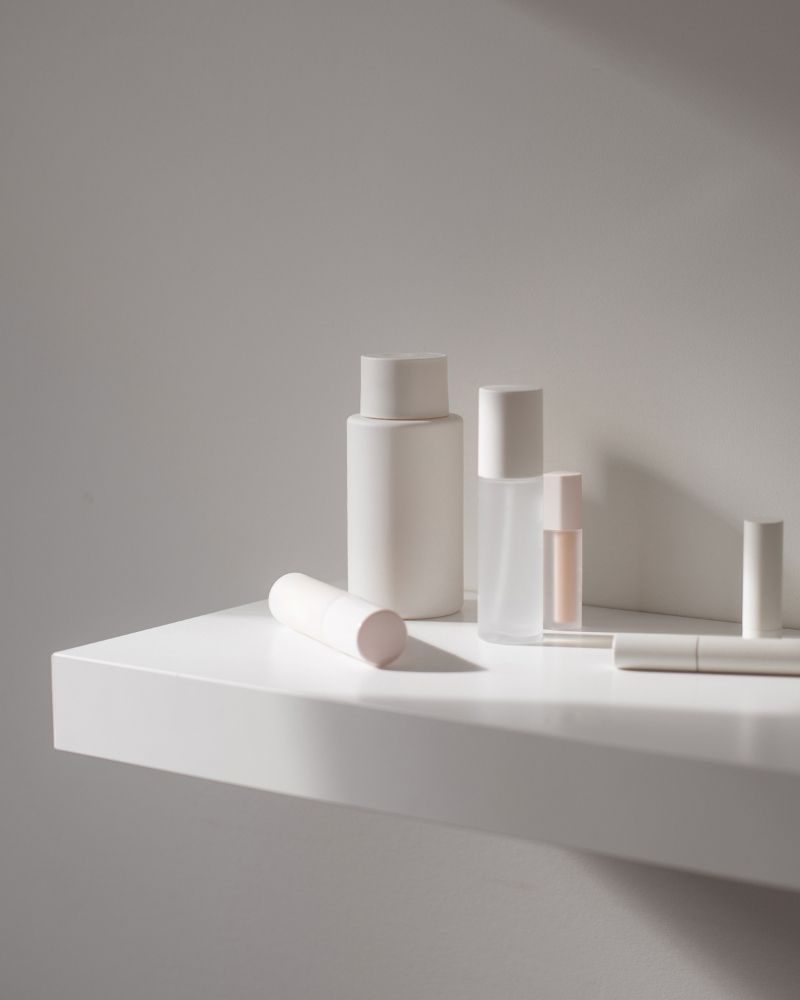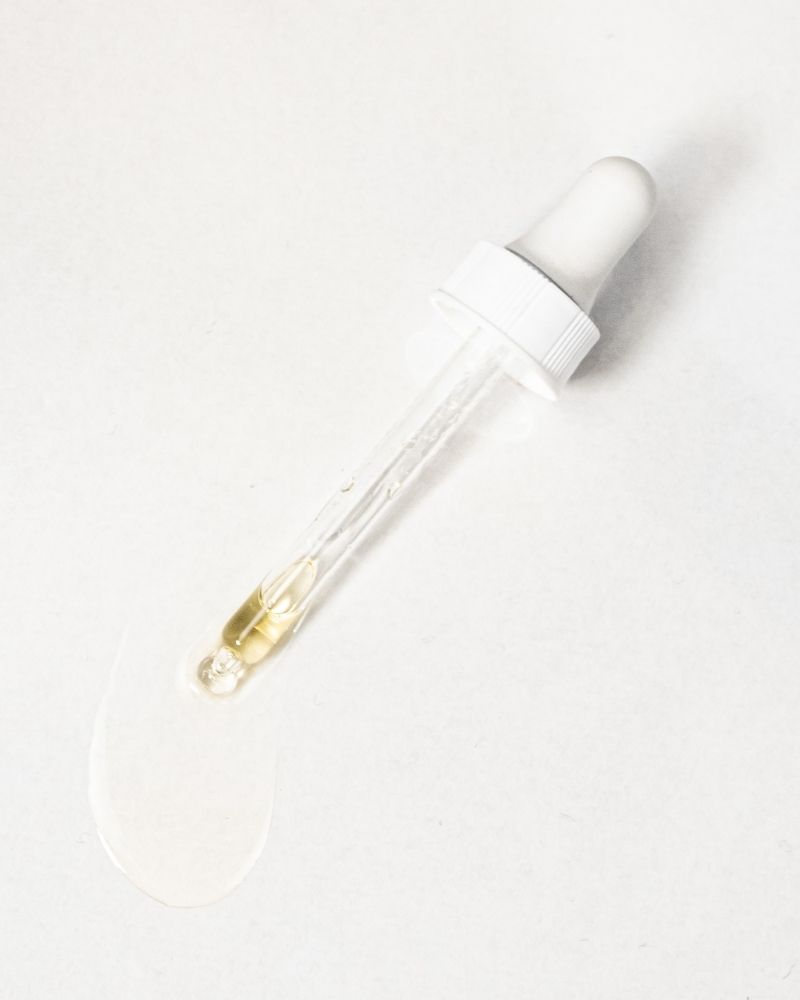Does Retinol Expire? A Guide to Retinol Shelf Life and Storage
This post may contain affiliate links.

Retinol is a popular ingredient in many skincare products due to its ability to improve skin texture, reduce fine lines and wrinkles, and even out skin tone. However, like most skincare products, retinol has a shelf life and can expire over time. This raises the question: does retinol expire? Can retinol be used after the expiration date?
The answer is yes. Retinol does expire, and using expired retinol can lead to skin irritation, breakouts, and other adverse effects. It’s essential to know when your retinol products expire and how to properly store them to ensure their effectiveness and safety.
In this article, we’ll explore the shelf life of retinol, how to tell if your retinol has expired, and the potential risks of using expired retinol. We’ll also provide tips on how to extend the shelf life of your retinol products and how to incorporate them into your skincare routine for optimal results.
What is Retinol?
Retinol is a derivative of vitamin A and belongs to a class of products called retinoids. Retinol is in the same family as prescription retinoids like tretinoin and Retin-A. It is known for its ability to improve the appearance of fine lines, wrinkles, and uneven skin tone. Retinol works by increasing cell turnover and stimulating collagen production, which can help to improve the overall texture and firmness of the skin, as well as well as treat and prevent acne.
Retinol is available in different forms, including creams, serums, and oils. Over-the-counter retinol products are generally milder and can be used to improve the appearance of aging skin.
Related post: Tips On Switching From Tretinoin To Tazorac
Does Retinol Ever Expire?

Yes, retinol can expire. Like any other skincare product, retinol has a shelf life and can lose its effectiveness and go bad overtime.
As with all products, retinol has an expiration date and this date will depend on the specific formulation of the product you are using.
This means that using expired retinol may not produce the desired results and may even cause adverse effects on the skin.
It is generally recommended to use retinol products within 6-12 months after opening the bottle. However, the exact expiration date may vary depending on the brand and formulation of the product. Some retinol products may have a shorter shelf life and may need to be used within a few months of opening.
Using expired retinol may lead to skin irritation, redness, and dryness. It is important to check the expiration date of your retinol product before using it and to dispose of any expired products.
Overall, it is important to store your retinol products properly and to use them within their expiration date to ensure their effectiveness and safety.
Does Retinol Expire?
The short answer is yes – retinol products do expire. However, it’s important to note that the expiration date on the bottle is not a hard and fast rule. In other words, just because the cream has expired doesn’t mean it’s completely ineffective. It all depends on how it’s stored and how long it’s been expired for.
Does Retinol Have an Expiration Date?
While the short, technical answer is yes, the fact that retinol has an expiration date doesn’t mean it automatically goes bad or becomes ineffective when that date hits. In fact, like the common practice around many other medications, it’s generally safe for use for six months to a year after the printed expiration date.
Of course, you want to look for any signs of the retinol going bad before continuing to use it.
Where To Find The Expiration Date Of Retinol
If you’re wondering where is the expiration date on tretinoin cream, there are 2 places you can find it: on the tube and on the box/packaging.
PAO = Period After Opening

The PAO (Period After Opening) is a symbol that indicates the recommended time period for which a beauty product can be used safely after it has been opened. The symbol usually looks like an open jar with a number followed by the letter “M” (for months) inside.
For example, if a product has a PAO of 12M, it means that it is safe to use for up to 12 months after opening. The PAO is important because beauty products can harbor bacteria and other harmful microorganisms that can cause skin irritation or infection if used beyond their recommended shelf life. This is especially important to pay attention to for products that are in jar packaging, as they are more prone to contamination from your fingers.
To find the PAO of a beauty product, simply look for the open jar symbol and the number of months indicated on the packaging or label. It is important to follow the PAO guidelines.
Expiration Date On Packaging
Like any other skincare product, retinol has an expiration date that indicates the recommended time period for which it can be used safely and effectively.
The expiration date of a retinol product can be found on the packaging or somewhere on the container. Look for the letters “EXP” followed by a date.
For example, if a retinol product has an expiration date of 08/2023, it means that it is safe to use until August 2023.
It is important to check the expiration date of your retinol products before using them to ensure that they are still effective and safe for use. Using expired retinol products can lead to skin irritation, inflammation, or other adverse reactions.
It’s important to note that expiration dates and manufacture dates are not the same. The manufacture date is when the product was made, so if you see a date on your new product that’s already passed, it’s likely the manufacture date. Always look for the letters EXP when looking for the expiration date.
Batch Code

Batch codes are a series of numbers, letters, or symbols that are printed on the packaging of skincare products. These codes are used by manufacturers to identify the specific batch or lot of a product, which can be useful for tracking quality control and product safety.
In addition, batch codes can also be used to find the expiration date or manufacture date of a skincare product. This information can be helpful for determining whether a product is still safe and effective to use. To decode a batch code, you can use various online batch code checkers or databases, like checkcosmetics.net that can provide information on the product’s manufacturing and expiration dates.
You can also reach out to the manufacturer to have them look up the batch code and provide you with the expiration date. This can be helpful when you have a product that you can’t read the expiration date on.
It is important to note that not all skincare products have batch codes, and some manufacturers may use different coding systems, so it is always best to check the packaging or contact the manufacturer directly if you have any questions about a product’s expiration or manufacture date.
How Long Does Retinol Last Once Opened
Once opened, retinol products typically last for about 6 to 12 months, depending on the formulation and storage conditions. Retinol is a highly unstable ingredient that can break down and lose its effectiveness over time, especially when exposed to light, air, and heat.
To prolong the shelf life of your retinol products, it is important to store them in a cool, dry place away from direct sunlight and heat sources.
You can also look for retinol products that come in opaque or airtight packaging, which can help protect the product from degradation.
Does Retinol Expire If Unopened?
Yes, even if unopened, retinol products can expire over time.
The shelf life of a retinol product can vary depending on the formulation and storage conditions, but it is typically between 1 to 3 years. The expiration date of a retinol product can usually be found on the packaging or on the bottom of the container.
That said, it the retinol has been stored properly and is in an air-tight, opaque container, it’s likely okay to use for a few months past the expiration date. However, if the product has not been stored properly and is in a transparent jar or bottle, it’s best to toss it. Even if the product hasn’t gone bad, it’s likely the retinol is no longer effective.
Can You Use Expired Retinol?
It’s not recommended to use expired retinol products, as they may have lost their effectiveness and can potentially cause skin irritation, inflammation, or other adverse reactions.
Retinol is a highly unstable ingredient that can break down over time, especially when exposed to light, air, and heat. Expired retinol products may also harbor bacteria and other harmful microorganisms that can cause skin infections or allergic reactions.
As long as the retinol product does not show any signs that it has gone bad, it’s likely fine to use for a few months after its expiration date. Just keep in mind that the retinol is likely not as effective as it was when you first opened the product.
It’s best to toss any expired retinol and buy a fresh product, that way you know the retinol is effective and the product is fresh.
What Happens If You Use Expired Retinol Cream?
Using expired retinol cream can potentially cause skin irritation, inflammation, or other adverse reactions.
Using expired retinol means that the ingredients in the product are no longer effective or able to work as they should, including preservatives. Preservatives are key in any product formulation to prevent bacteria or mold growth. When preservatives are no longer able to work properly, the product can start to grow mold and/or bacteria. This can lead to skin infections, acne, reactions and more.
Using an expired retinol product can potentially cause a range of skin reactions, including redness, irritation, dryness, peeling, and sensitivity.
These reactions can vary in severity depending on the individual’s skin type and the concentration of the retinol product, but they can be uncomfortable and unsightly.
How Do You Know If Retinol Is Still Good?
The most accurate way to tell if retinol is still good, is to look at the expiration date on the packaging and looking at the PAO.
If your product is within its expiration date, and is unopened, it’s perfectly fine to use.
If your product is within its expiration date and has been opened, check the PAO. If the product has been opened for longer than the PAO, it’s best to toss it. However, you can also look for signs that the product has gone bad and if you don’t notice any, it should be fine to continue to use for a short period of time. Just keep in mind that the retinol is likely not as effective as it once was.
The safest way to determine if your retinol is still good is by following the expiration date and PAO.
How To Tell If Retinol Is Expired
Retinol is a powerful ingredient that can help improve the appearance of fine lines, wrinkles, and uneven skin tone. However, like all skincare products, retinol has a limited shelf life. Here are some signs that your retinol product may have expired:
- Change in color: If your retinol product has changed color from its original shade, it may have expired. So if you notice that your product has turned brown or another unusual color, it’s time to toss it.
- Change in smell: Retinol products should not have a strong odor. If your product smells off or has a foul odor, it may have gone bad.
- Change in texture: If your retinol product has become lumpy or runny, it may have expired. Bacteria can grow in expired products, which can change the texture of the product and make it unsafe to use.
Using expired retinol products can be harmful to your skin. Not only will they be less effective, but they can also cause irritation, inflammation, and breakouts. To ensure that you’re getting the most out of your retinol products, it’s important to check the expiration date and replace them when necessary.
How To Store Retinol Products To Keep Them Fresh
Proper storage of retinol is essential to ensure it remains effective until the expiration date. Here are some tips to help you store your retinol products:
- Keep it in a cool, dry place away from direct sunlight. Exposure to heat and light can break down the active ingredients in retinol, making it less effective.
- Store retinol products in their original packaging. The packaging is designed to protect the product from air and light exposure, which can degrade the retinol over time.
- Avoid storing retinol in the bathroom. The humidity and temperature changes in the bathroom can cause the product to break down quickly.
- Make sure the lid is tightly closed after each use. Exposure to air can cause retinol to break down and lose its effectiveness.
By following these simple storage tips, you can help ensure that your retinol products remain effective until their expiration date. Remember to always check the expiration date on your products and dispose of any expired products.
Does Retinol Expire FAQ’s
Does retinol expire after 3 months?
Retinol does not necessarily expire after 3 months, as the shelf life of a retinol product can vary depending on the formulation and storage conditions.
If retinol is stored in a hot, damp environment and often exposed to sunlight, it can certainly expire within 3 months. But, if you store the retinol product properly, it should last well beyond 3 months.
However, it is generally recommended to use retinol products within 6 to 12 months after opening, as retinol is a highly unstable ingredient that can break down and lose its effectiveness over time, especially when exposed to light, air, and heat. And each time you open the product, it’s being exposed to light and air.
What is the shelf life of retinol?
The shelf life of retinol completely depends on the formulation and storage conditions. Each product will have its own shelf life, and how the product is stored plays a big part in the shelf life.
Most products will have storage recommendations listed on the packaging that will help to maximize the shelf life.
Generally, the shelf life of retinol is between 6-12 months.
Can you use retinol after expiration date?
Retinol is a vitamin A derivative that’s similar to tretinoin, but it’s not as strong. It’s also not as stable, which means retinol doesn’t have as long of a shelf life as tretinoin does.
So while you can use retinol a few months past its expiration date, it’s not going to be as effective as it was when it was fresh, especially if it’s been opened. Plus, you run the risk of a reaction, irritation, acne and more if you use expired retinol.
Related post: Retinol Vs Retin-a
Does retinol lose effectiveness?
Yes, retinol will lose its effectiveness over time, especially when exposed to light, air, and heat. Retinol is a highly unstable ingredient that can break down and become less potent over time. This can result in a decrease in the product’s ability to reduce the appearance of fine lines, wrinkles, and acne, as well as other benefits.
The shelf life of a retinol product can vary depending on the formulation and storage conditions, but it is generally recommended to use retinol products within 6 to 12 months after opening. This ensures that the retinol is potent enough so you can reap all the benefits.
How long does retinol last past expiration date?
If the retinol product has been opened, it likely won’t last long after the expiration date. Personally, I would not use anything past 3 months after the expiration date.
If the product is unopened, it should be fine to use for 6-12 months after the expiration date, just keep in mind that the product may not be as effective and look for any signs of the product going bad.
When Can You Tell Retinol Has Expired?
There are several signs that can indicate that a retinol product has expired. These include changes in color, texture, and smell. If you notice any of the following changes in your retinol product, it may be expired and should be disposed of:
- Change in color: Retinol products may change in color over time, especially if they have been exposed to light or air. If your retinol product has changed in color, become darker or yellowish, it may be expired.
- Change in texture: Retinol products may also change in texture over time, becoming thicker, clumpy, or grainy. If your retinol product has changed in texture, it may be expired.
- Change in smell: Retinol products may develop an unpleasant smell over time, especially if they have been exposed to heat or moisture. If your retinol product has a rancid or foul odor, it may be expired.
- Reduced effectiveness: Expired retinol products may also be less effective in reducing the appearance of fine lines, wrinkles, and acne. If you notice that your retinol product is not working as well as it used to, it may be expired.
It is important to always check the expiration date of your retinol products before using them and to dispose of them if they have expired or have any of the above signs of expiration. Using expired retinol products can potentially cause skin irritation, inflammation, or other adverse reactions.
Is Using Expired Retinol Bad?
Using expired retinol can potentially be bad for your skin. Expired retinol products may have lost their effectiveness and may contain inactive or degraded ingredients that can further irritate the skin.
In addition, expired retinol products may also harbor bacteria and other harmful microorganisms that can cause skin infections or allergic reactions.
Using expired retinol products can potentially cause skin irritation, inflammation, dryness, peeling, and sensitivity.
How To Use Retinol
If you’ve discovered that old tube of retinol in your cabinet and want to give it a go, here’s how to use retinol properly.
- Cleanse skin with gentle cleanser
- Wait 30 minutes
- Apply retinol
- Apply moisturizer
Related post: Switching From Retinol To Retin-A
Does Retinol Expire? The Verdict
Retinol is a powerful ingredient that can help improve the appearance of your skin. However, it is important to keep in mind that retinol does expire, and using expired products can lead to skin irritation and other issues.
It is recommended to use your retinol-containing products within 6-12 months after opening them. Be sure to check the expiration date on the packaging before use, and discard any products that appear discolored, lumpy, or runny.
